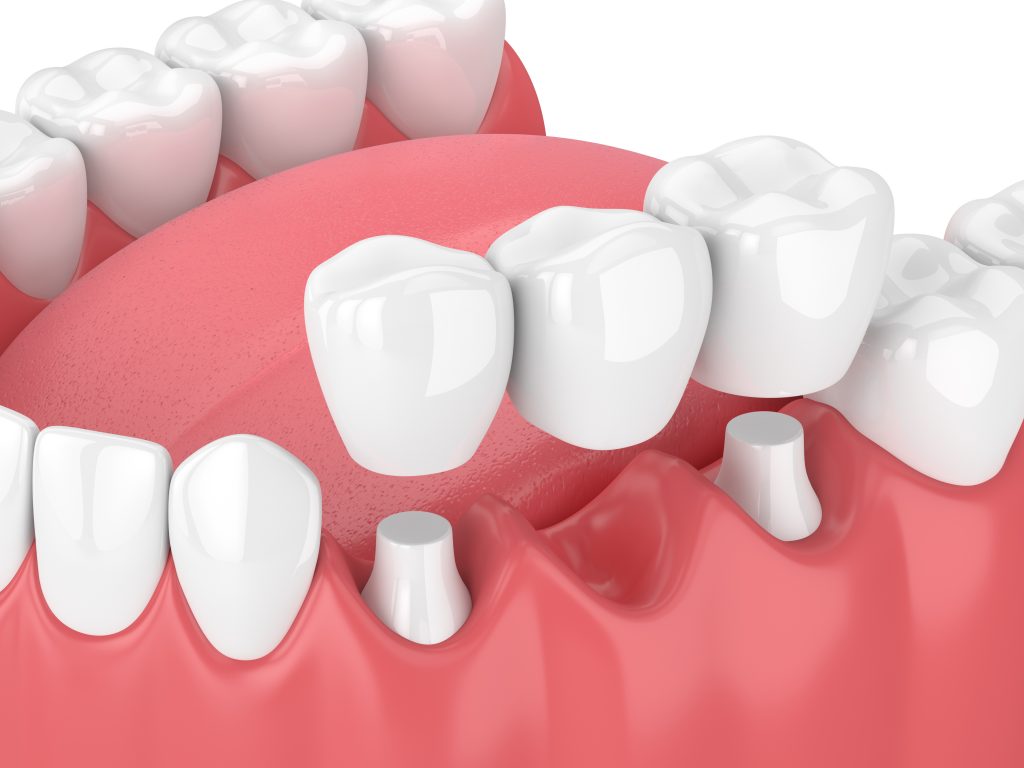What is the best type of dental bridge?
This is a question we field quite frequently at Penn Dental Family Practice. To help provide the answer, it’s important to discuss why missing teeth require a solution such as a dental bridge (or dental implants).
While missing teeth can cause many people to feel embarrassed, insecure, and reluctant to smile, it can also result in a number of oral health problems. At PDFP, we offer specialized prosthodontic care to help patients find solutions to repair and replace damaged and missing teeth. Our goal is to not only help you find the best type of dental bridge but more importantly, the right type of dental bridge for you.
Why is it Important to Replace Missing Teeth?
As we mentioned earlier, missing teeth can negatively impact self-confidence, but they can also lead to oral hygiene and health complications. Even one missing tooth can throw off the alignment of the entire jaw and bite. This causes stress to the jaw and teeth which can be painful for the patient. Multiple missing teeth make oral hygiene more difficult to achieve, which increases the risk of gum disease and tooth decay.

And, missing a tooth or teeth is likely more common than you think. While many people associate missing teeth with poor oral hygiene as the root cause, there are additional ways to lose teeth. A trauma, such as a sports-related impact or car accident, for example—and even stress—can result in damaged teeth that may need to be extracted. In fact, in a recent study about the effects of stress related to the pandemic in dental patients revealed a 59.4% increase in chipped and cracked teeth (from bruxism/teeth grinding).
To learn more about missing teeth and why it’s important to replace them, we encourage our patients to download our complimentary eBook: Are Missing Teeth Holding You Back?
How Dental Bridges Work
No matter the cause of missing teeth, replacing them is a priority. And, dental bridges can serve as a solution. A traditional bridge (also referred to as a fixed bridge) utilizes the teeth on either side of the vacant space (gap in between teeth) for the new false tooth.
When preparing traditional dental bridges, the anchoring teeth on either side of the gap must first be prepared for dental crowns. This allows the new tooth or “pontic” to be permanently secured to the adjacent teeth. To ensure a seamless fit with your existing teeth, your dentist takes an impression of both your abutment teeth and the space to be filled.
In addition to traditional bridges, there are Maryland bonded bridges. Unlike a traditional bridge that requires crown preparation (which disturbs the tooth enamel), a Maryland bridge does not necessitate this step. Instead, the Maryland bridge has metal “wings” that attach to each abutment tooth. Your dentist reinforces this metal framework with a composite resin.
As a third dental bridge option, there are cantilever bridges. These bridges may be recommended for patients who do not have teeth on both sides of the area of a missing tooth or teeth.
If many teeth are missing, a dentist may suggest dental implants. In this case, the type of bridge placed is referred to as an implant-supported bridge. While dental implants can be used for all missing teeth, qualifying patients may prefer dental bridges as a more affordable solution.
Which Tooth Replacement is Best?
The best way to know for sure which type of dental bridge is right for you is to have a consultation with a prosthodontist. A prosthodontist has three (or more) additional years of specialized education and training focused on the restoration and replacement of teeth.
At PDFP, for example, our prosthodontists generally have four years of advanced training in prosthodontics, in addition to added dental practice experience. Our specialists take pleasure in working one-on-one with patients to find the best solution for damaged or missing teeth.
Patients who receive fixed bridges find that with proper care, their new teeth replacement solutions last for years to come. Not to mention also boosting their confidence, providing an attractive smile, and preventing them from oral health problems (associated with missing teeth).
Are you worried about a missing tooth or teeth? Or, would you like to schedule an appointment with a prosthodontist? Call us any time at215-898-7337.


